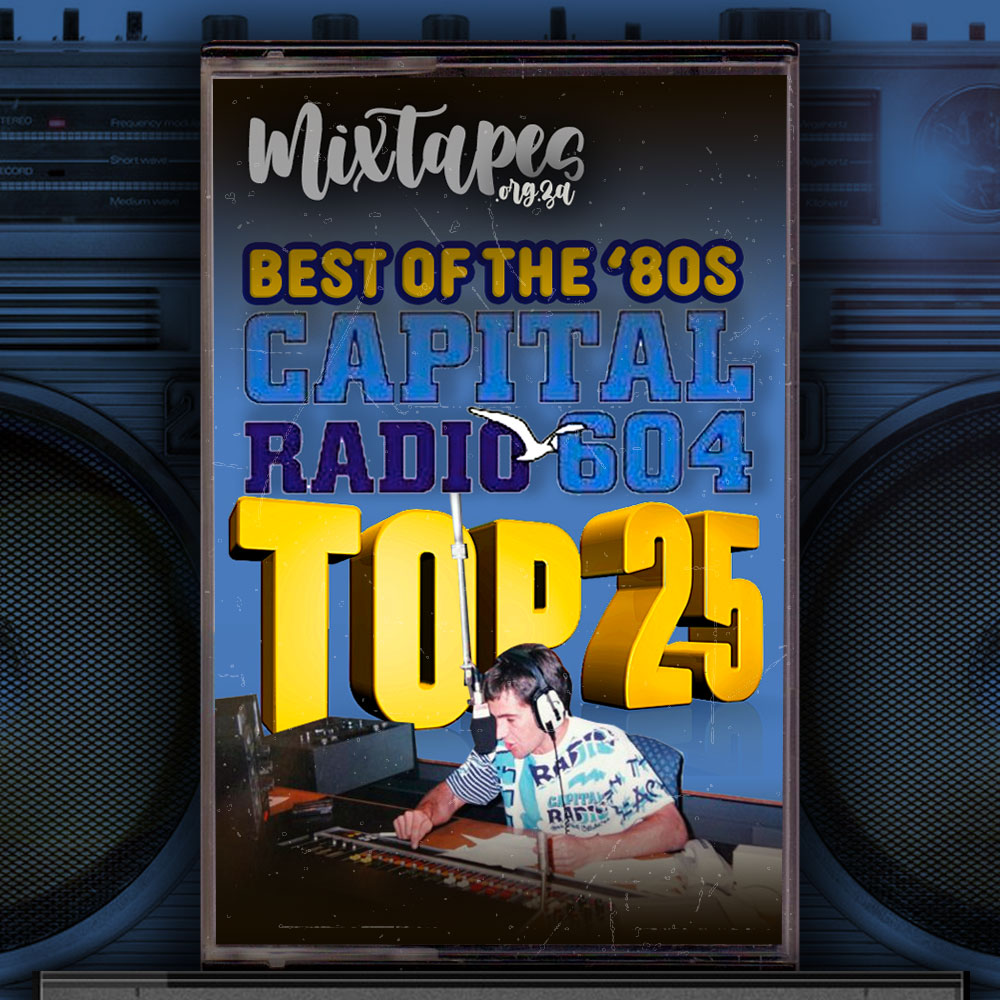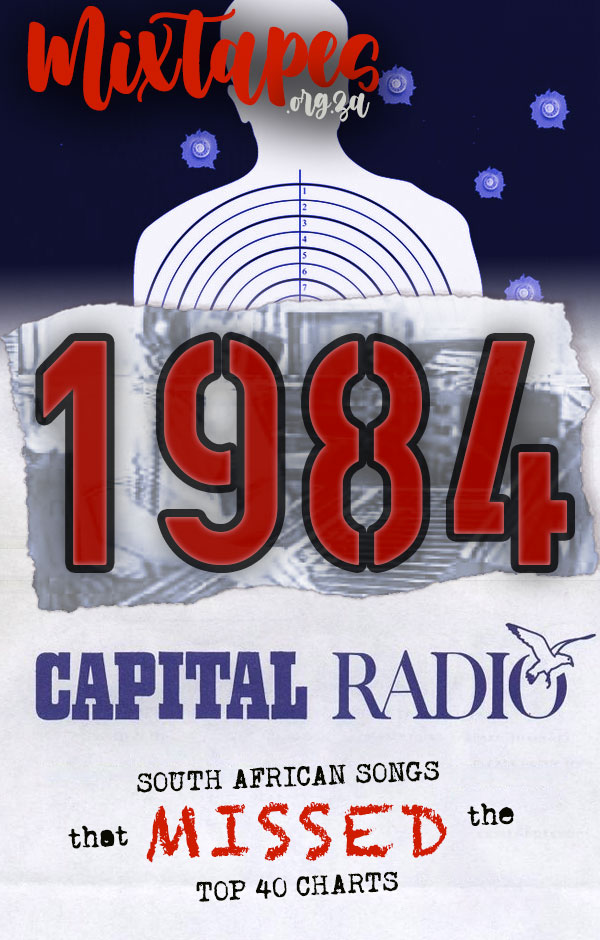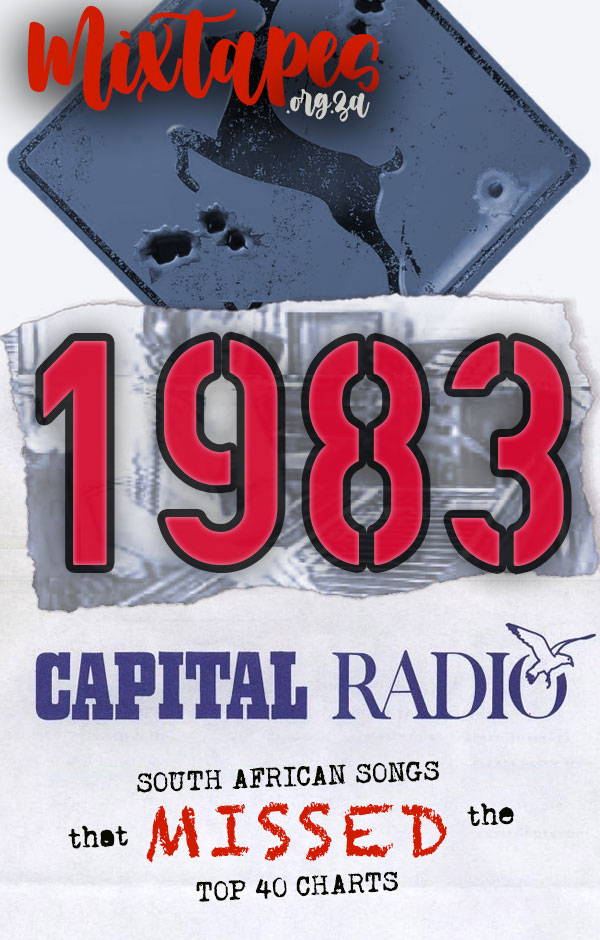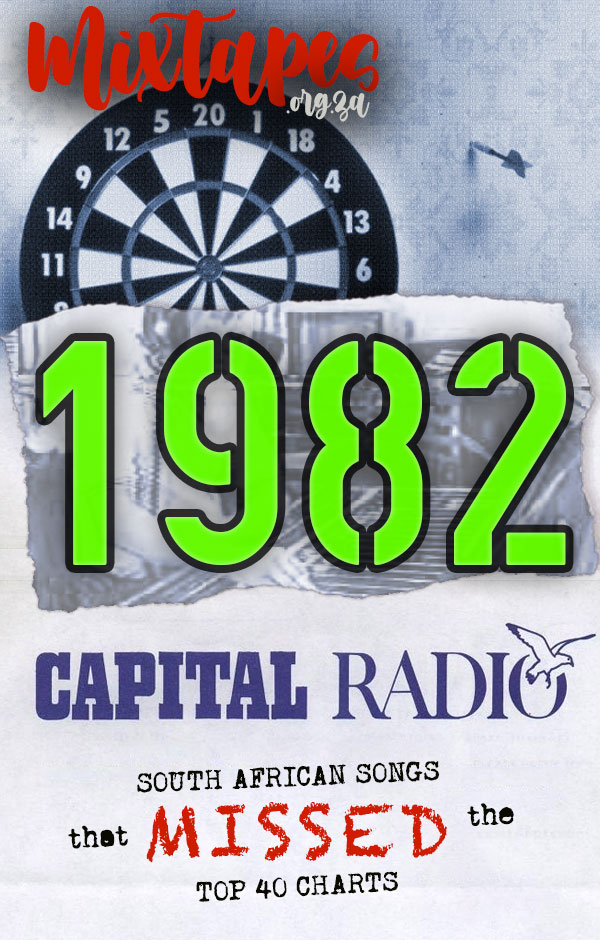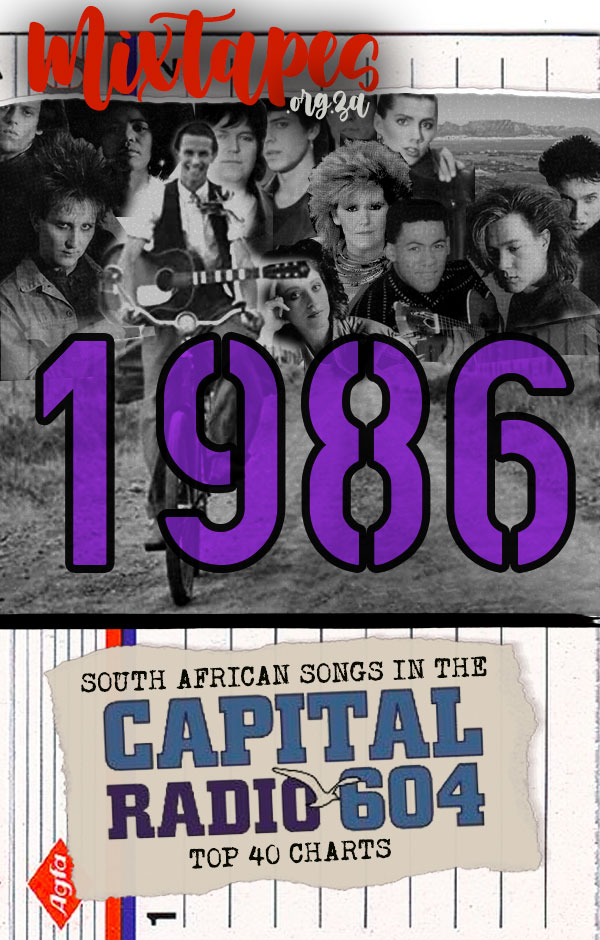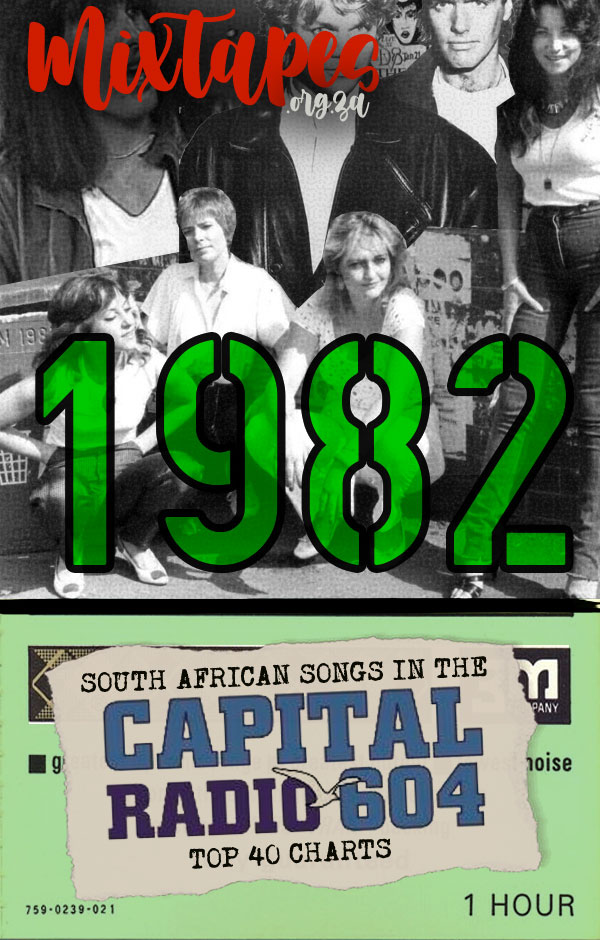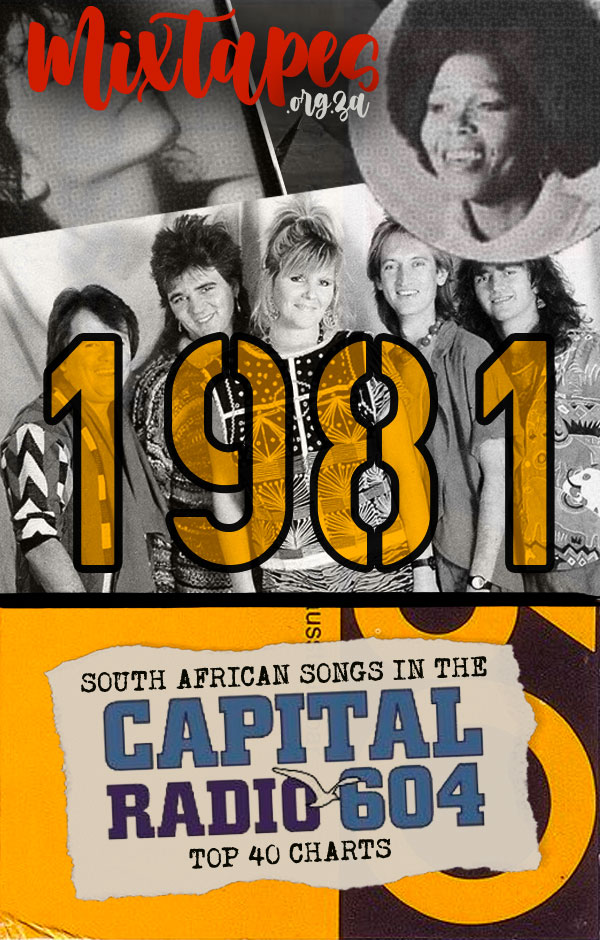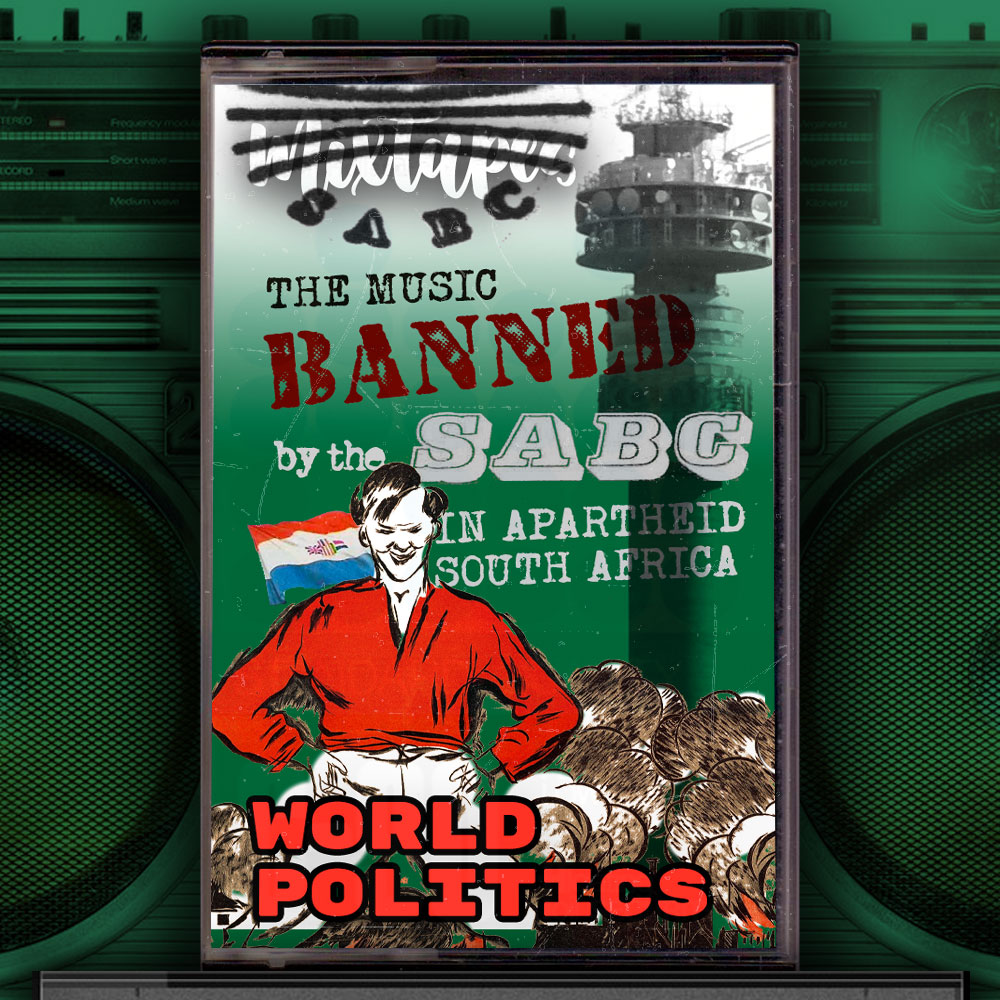
A glance through the political songs banned from airplay by the SABC censors reveals how many broad political issues, which do not relate directly to South Africa, were nevertheless included on the ‘avoid’ lists. The censors, politically conservative and paranoid about anything controversial, tended to err on the side of political caution when deciding whether or not to grant airplay. This mixtape features a variety of such political songs, regarded as too contentious for the South African airwaves.
“Modern Times” is the title track off Latin Quarter’s debut album, with reference to Modern Times, the satirical Charlie Chaplin film. The song is a critique of the effects of McCarthyism on Hollywood: “So get up! Go on! Grip that stand! And press your hand to your heart. Big Mac is asking the questions. And this is only the start…”. It is not clear whether or not the SABC censors realized what the song was about, but the beginning of the song – about protest not being allowed – would have been too political, regardless of the rest of the song.
“Black In America” by Jesse Johnson also focuses on politics in the USA, this time dealing with racial inequality, noting that “still we fight for the rights to be black and brown and set free”. For the SABC censors, the parallels with South Africa were too strong to ignore. The same can be said for “Wounded Knee” by Booker T and Priscilla and “White Fool” by Clannad. The former refers to the loss of nearly three hundred Lakota people and their land at the hands of the United States Army in the Wounded Knee Massacre of December 1890: “Bury my heart at Wounded Knee … and when you stole their land you stole their bones”. The latter song describes the experience of an unnamed tribe whose land has been stolen by imperialists: “Greed and lust, it stripped the earth bare; When the white fool came to a new land”.
The Flying Pickets were named after mobile strikers who travelled around the United Kingdom to join striking workers picketing at different workplaces. Their song, “Remember This”, is a protest against the countless Chilean citizens who disappeared and were killed by the military junta, leading the band to conclude “too many people have disappeared to doubt what has been done”. Perhaps in the minds of the censors the disappearance of political activists opposing the Chilean regime was too similar to what was happening to activists fighting the apartheid government, so the song was banned from airplay.
Any reference to revolutions was simply far too contentious for the censors to accommodate and so Tracy Chapman’s “Talkin’ ‘bout a revolution”, Culture’s “Revolution Time” and The Cult’s “Revolution” didn’t stand a chance of airplay. While the first two songs were overtly about political revolution it is not clear whether the Cult’s song is about political revolution at all, with lines like, “Joy or sorrow. What does revolution mean to you?” Meanwhile, Sam Cooke’s cover of Bob Dylan’s “Blowin’ In The wind” asked politically uncomfortable questions like “How many years can some people exist before they’re allowed to be free?”
Hotline’s “Freedom” was a call for personal freedom against everyday regulations (“We’ve got no bloody freedom”) and was also banned from airplay, for good measure. In Def Leppard’s “Run Riot”, listeners are encouraged to escape the boredom of following rules and urged to “break a rule or two” and ultimately to run riot. The message in “The Knife” by Genesis was that violent revolutions lead to the rise of dictators. It includes lines like “Stand up and fight for we know we are right” and “We are only wanting freedom”. Both songs were regarded as too politically contentious for the South African airwaves.
The Style Council’s “With Everything To Lose” is a general critique of Thatcher’s Tory government, especially providing a critique of the British racist class system and was met with disapproval by the SABC censors who took exception to lines like “The shit goes to the blacks; a generation’s heart torn out”. Joe Jackson’s “Tango Atlantico” refers to the Falklands War, referencing the atrocities of the war: “Sorry Tommy. Lost a foot? Bloody land mines. No more soccer for you”. Once again, the parallels to the South African context were too similar to be ignored by the censors, who felt that any sort of anti-war message would potentially harm the apartheid war effort.
Black Sabbath’s “War Pigs” is also an anti-war song, although on a generic level: the generals who organise wars are the ‘war pigs’ who declare wars and then hide away while poor people are dispensed with like pawns on the battle grounds. John Fogerty explores a similar theme in “Violence Is Golden” but in this instance the protagonist is an arms dealer who sells arms to both sides of any war that’s happening. He doesn’t care about the issues but just wants to make money. The SABC censors were probably most irked by lines in which the arms for sale were listed, “Pass another plate of shrapnel; sprinkle it with TNT; Gotta have another grenade salad; split it with your enemy”.
Ironically “Union Man” by the Cate Brothers is sung from the point of view of a worker who is “working like a fool for my pay” and is told by the ‘union man’ that he has to go on strike, but he doesn’t want to, because he is worried about the bills he has to pay. Such was the paranoia of the SABC censors that they appeared to ban it from airplay simply because it referred to trade union activities, even though in South Africa trade unions were legal.
Similarly to Hotline’s “Freedom”, Depeche Mode’s “Black Celebration” was about personal issues, not political issues, but the SABC censors were afraid that the title might be misunderstood in South Africa, even though the lyrics clearly state: “Let’s have a black celebration, black celebration, tonight; To celebrate the fact, that we’ve seen the back, of another black day”.
Carte Blanche’s “Killer In The Crowd” is a fairly general and cryptic song about a policeman, a ‘killer in the crowd’, who is there to “stop the fighting”. Even though Carte Blanche tried to slip the song passed the censors by adapting the lyric sheet, changing “I’m just a policeman, a martyr in blue, to “I’m just a please man, a tomato in blue” the censors nevertheless objected to lines like “My hand is a pistol, my foot … a grenade”.
“Fight” by the Rolling Stones is a song about … well, fighting. It includes gory descriptions of what the protagonist plans to do to people: “There’s a hole where your nose used to be; Gonna kick you out my door” and “Gonna blow you to a million pieces; Blow you sky high, I don’t care”. While the sheer violence of the songs was enough for the SABC censors to ban it from airplay, the reference to someone being blown up in a bombing was also politically contentious.
Closer to home than all the other songs on this mixtape is Nana Coyote’s “Namibia 435”, an upbeat celebration of the United Nation’s Security Council Resolution 435 which called for the withdrawal of South African forces from Namibia in the build up to Namibian independence. Even though the South African government had agreed to the process and Namibia was to be granted independence, the censors seemingly objected to a song which celebrated the event.
Just as the apartheid regime could not stem the winds of change blowing across the African continent, the SABC censors ultimately could not prevent the liberation of the South African airwaves. The SABC wasted years of working hours and large sums of money trying to stop South Africans from hearing music which they deemed unacceptable, and then the entire charade ended. We can now listen to what we want to and broadcasters can play whatever they like, provided they observe broadcast regulations which outlaw songs promoting hate speech and which keep overtly offensive songs to watershed periods: between 21h00 and 05h00. And on the internet pretty much anything goes no matter what time it is. Enjoy!
- Modern Times – Latin Quarter
- Black In America – Jesse Johnson
- Talkin’ Bout A Revolution – Tracy Chapman
- Remember This – Flying Pickets
- Tango Atlantico – Joe Jackson
- With Everything To Lose – Style Council
- Union Man – Cate Brothers
- Blowin’ In The Wind – Sam Cooke
- Wounded Knee – Booker T & Priscilla Jones
- Violence Is Golden – John Fogerty
- Killer In The Crowd – Carte Blanche
- Black Celebration – Depeche Mode
- White Fool – Clannad
- Revolution – The Cult
- Freedom – Hotline
- Fight – Rolling Stones
- Run Riot – Def Leppard
- Namibia 435 – Nana Coyote
- The Knife – Genesis
- War Pigs – Black Sabbath
